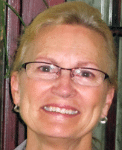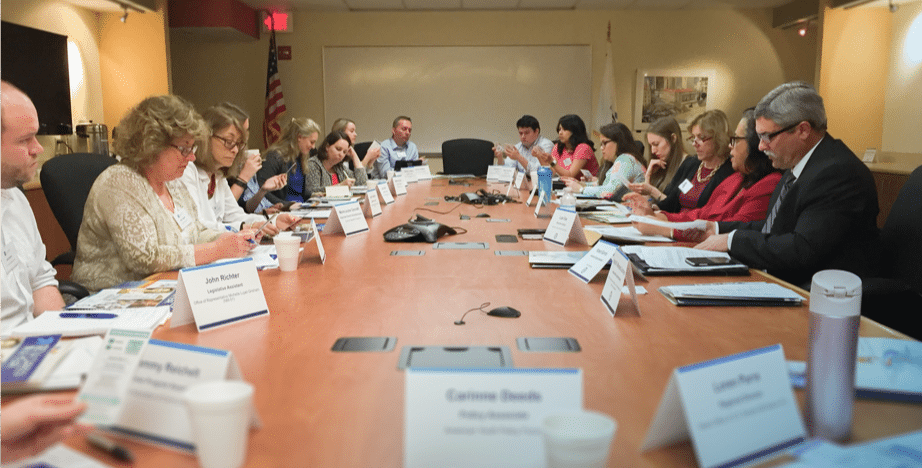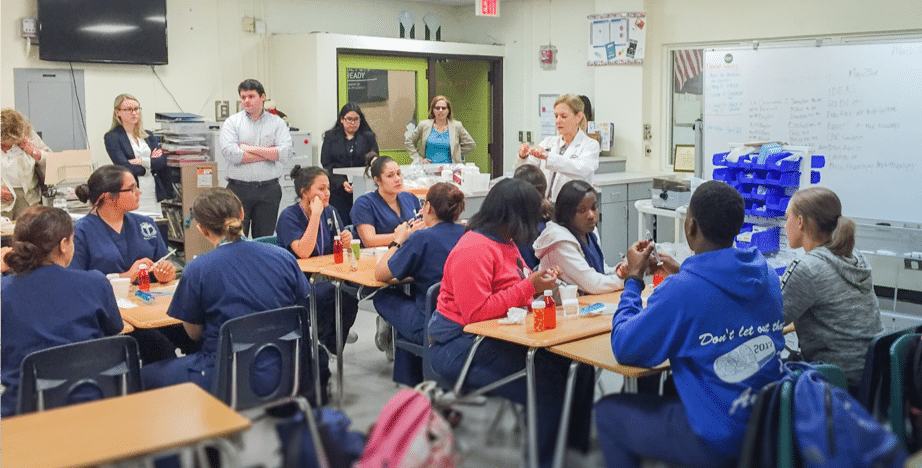Overview
Education systems across the country are beginning to experiment with competency-based models in which students advance based upon mastery. As schools, districts, and states pursue these innovations, it is important to remember that many expanded learning providers have been implementing competency-based models for many years and expanded learning stakeholders should be considered key partners in this work. Those in the expanded learning community should see a shift to a competency-based system as an opportunity for schools to validate the learning happening in non-formal settings and as a valuable tool for promoting school-community partnerships.
While much of the work to move toward a competency-based system happens within schools and programs, district and state level stakeholders can play an important role, both in developing an encouraging policy context and through guidance and technical assistance. Previous webinars have showcased promising competency-based expanded learning opportunities and discussed some local considerations. This final webinar in our series highlighted the role districts and states can play in facilitating this shift and discuss the policy barriers and opportunities at play.
Presenters Included:
Stephanie Krauss, Senior Fellow, Forum for Youth Investment
Sharon Lee, Director, Office of Multiple Pathways, Rhode Island Department of Education
Kate Nielsen, Senior Policy Analyst, National Governors Association
Michelle Un, Project Manager, Research & Data, Rhode Island After School Plus Alliance.
Presenter Biographies
 Stephanie Krauss began her career as a fifth grade teacher at age 18, serving a migrant community in Phoenix, Ariz., through Teach For America. She has since dedicated herself to working with and on behalf of disconnected youth in the United States and East Africa (where she trained teachers in rural and slum communities). At the Forum, Stephanie focuses on competency-based education and expanded learning opportunities – researching the experiences of educators and leaders across the country, and using those findings to create tools to help schools get young people ready for life. She came to the Forum after serving as president and chief executive officer of Shearwater Education Foundation.
Stephanie Krauss began her career as a fifth grade teacher at age 18, serving a migrant community in Phoenix, Ariz., through Teach For America. She has since dedicated herself to working with and on behalf of disconnected youth in the United States and East Africa (where she trained teachers in rural and slum communities). At the Forum, Stephanie focuses on competency-based education and expanded learning opportunities – researching the experiences of educators and leaders across the country, and using those findings to create tools to help schools get young people ready for life. She came to the Forum after serving as president and chief executive officer of Shearwater Education Foundation.
Stephanie holds a Master of Education degree in curriculum and instruction from Arizona State University, and a Master in Social Work degree in social and economic development of youth from Washington University in St. Louis.
 Sharon Lee, Director of the Office of Multiple Pathways in the RI Department of Education, has responsibilities that include supervision of Adult Basic Education and GED, Career and Technical Education, Secondary Education (grades 6-12) and Virtual Learning initiatives in RI. Dr. Lee’s work involves developing a strong policy framework and facilitating implementation of those policies that ensures all learners have access to quality learning experiences including virtual learning.
Sharon Lee, Director of the Office of Multiple Pathways in the RI Department of Education, has responsibilities that include supervision of Adult Basic Education and GED, Career and Technical Education, Secondary Education (grades 6-12) and Virtual Learning initiatives in RI. Dr. Lee’s work involves developing a strong policy framework and facilitating implementation of those policies that ensures all learners have access to quality learning experiences including virtual learning.
Dr. Lee has extensive state and regional experience in implementing state policies and processes that support college and career readiness of all RI learners through a comprehensive system of pathways.
 Kate Nielson is a Senior Policy Analyst in the Education Division of the National Governors Association, Center for Best Practices. In this role she supports states in their work to implement the Common Core State Standards (CCSS) through research, data analysis and technical assistance. She also assists states in aligning the K-12 CCSS standards to early childhood learning standards.
Kate Nielson is a Senior Policy Analyst in the Education Division of the National Governors Association, Center for Best Practices. In this role she supports states in their work to implement the Common Core State Standards (CCSS) through research, data analysis and technical assistance. She also assists states in aligning the K-12 CCSS standards to early childhood learning standards.
She is the author of several reports on state progress with CCSS implementation. In addition to her CCSS work, Nielson leads NGA’s competency-based education initiative and serves on the board of CompetencyWorks. She also supports the Division’s human capital and resource reallocation projects. Prior to joining NGA, Nielson worked as a law clerk for the Center for Law and Education where she analyzed federal legislation, and as an Education Fellow in the U.S. Senate. Additionally, she has experience in the consensus-building field working with Convergence Center for Policy Resolution, where she led the education policy program. She holds a Juris Doctor and Master of Public Policy from the University of Michigan and a Bachelor of Arts from Bowdoin College.
 Since moving to Rhode Island, Michelle Un has been involved in working with youth, with an interest in policy and strategies that supports access to educational opportunities. Prior to joining RIASPA, Michelle worked for two years at Mount Pleasant High School in s high school credit project as well as her knowledge of data and research. Michelle received her B.A. in Public Policy & American Institutions from Brown University.
Since moving to Rhode Island, Michelle Un has been involved in working with youth, with an interest in policy and strategies that supports access to educational opportunities. Prior to joining RIASPA, Michelle worked for two years at Mount Pleasant High School in s high school credit project as well as her knowledge of data and research. Michelle received her B.A. in Public Policy & American Institutions from Brown University.
Click here to view the presentation slideshow
Presenter Information:
Stephanie Krauss
Senior Fellow
7064 Eastern Ave NW,
Washington, DC 20012
314.974.5565
Sharon Lee
Director
Office of Multiple Pathways
Rhode Island Department of Education
255 Westminster Street
Providence, RI 02903
401.222.4600
Kate Nielsen
Senior Policy Analyst
National Governors Association
Hall of the States, 444 N. Capitol St.,
Suite. 267
Washington, D.C. 20001-1512
202.624.5300
Michelle Un
Project Manager, Research and Data,
Rhode Island After School Plus Alliance
50 Valley Street
Providence, RI 02909
401.331.2638




